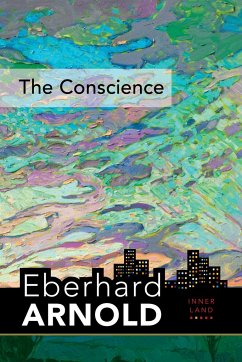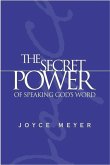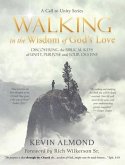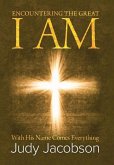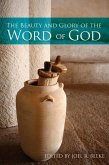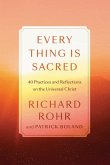When troubled consciences find healing they become a force for good. The conscience, our inner moral compass, is a sensitive instrument meant to warn us against all that might endanger our life and happiness. Many today despise or ignore the conscience, calling its working unhealthy repression of natural urges, or rejecting any certainty in the name of relativism. Others are tormented by its accusations. In this little book, Arnold points the way to complete healing and restoration of even the most troubled conscience. When Christ¿s forgiveness sets the conscience free and floods it with his live-renewing spirit, it becomes an active force for good, giving us clarity in personal, social, and political questions and leading us to peace, joy, justice, and community. The Conscience is the second volume of five in Inner Land: A Guide into the Heart of the Gospel. About Inner Land A trusted guide into the inner realm where our spirits find strength to master life and live for God. It is hard to exaggerate the significance of Innerland, either for Eberhard Arnold or his readers. It absorbed his energies off and on for most of his adult life--from World War I, when he published the first chapter under the title War: A Call to Inwardness, to 1935, the last year of his life. Packed in metal boxes and buried at night for safekeeping from the Nazis, who raided the author¿s study a year before his death (and again a year after it), Innerland was not openly critical of Hitler¿s regime. Nevertheless, it attacked the spirits that animated German society: its murderous strains of racism and bigotry, its heady nationalistic fervor, its mindless mass hysteria, and its vulgar materialism. In this sense Innerland stands as starkly opposed to the zeitgeist of our own day as to that of the author¿s. At a glance, the focus of Innerland seems to be the cultivation of the spiritual life as an end in itself. Nothing could be more misleading. In fact, to Eberhard Arnold the very thought of encouraging the sort of selfish solitude whereby people seek their own private peace by shutting out the noise and rush of public life around them is anathema. He writes in The Inner Life:
Es gelten unsere Allgemeinen Geschäftsbedingungen: www.buecher.de/agb
Impressum
www.buecher.de ist ein Shop der
buecher.de GmbH & Co. KG
Bürgermeister-Wegele-Str. 12,
86167 Augsburg
Amtsgericht Augsburg HRA 13309
Persönlich haftender Gesellschafter: buecher.de Verwaltungs GmbH
Amtsgericht Augsburg HRB 16890
Vertretungsberechtigte:
Günter Hilger, Geschäftsführer
Christian Sailer, Geschäftsführer
Sitz der Gesellschaft:Augsburg
Ust-IdNr. DE 204210010

